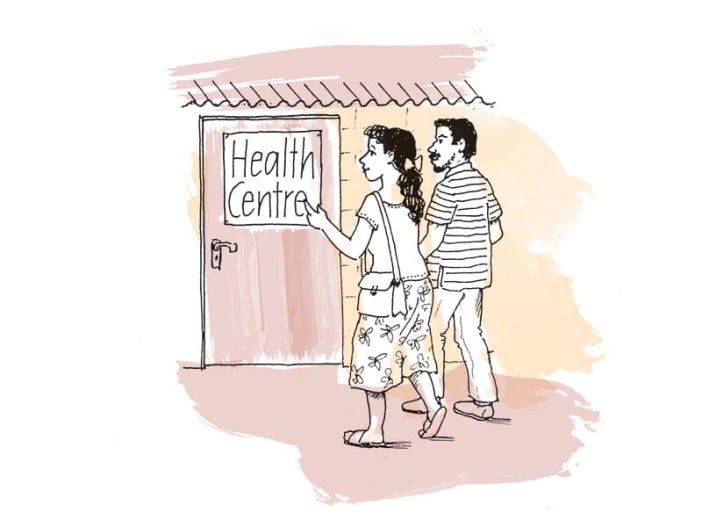Bring to mind a time when someone, perhaps a family member or someone in your community, was suffer-ing from an incurable disease.
Reflection
- What do you remember of that time?
- How did that experience make you feel?
Read Psalm 38
- How is the Psalmist’s life affected by his suffering?
- Can you identify with any of these areas?
This Psalm is not specifically about someone suffering with an incurable disease. But the physical, moral, social and emotional pain expressed by the Psalmist reflects some of the experiences and feelings of people with long-term illness. His final cry is that the Lord should not leave him, but should come quickly to help him (v 21-22).
Palliative care seeks to address pain – physical, psychological, social and spiritual – and other symptoms, for those with progressive incurable diseases. It requires the involvement of many different individuals – starting with the patient; including health workers and others, working closely with family members. In our work in Malawi, traditional authorities (chiefs) and spiritual leaders also play an important role in finding carers for patients who are discharged from hospital.
Finding hope
Dame Cicely Saunders – the founder of the modern hospice palliative care movement – said: ‘you matter because you are you, you matter until the last moment of your life and we will do all that we can to help you to live until you die.’
Read 1 Corinthians 15:9-22, 2 Timothy 1:10
- What difference does it make to face suffering with Jesus?
Many of us find it hard to spend time with those who are living with an incurable condition. Maybe we feel we don’t have much to give, maybe it reminds us too clearly that we are all mortal.
Christians have a lot to offer people who are struggling with incurable disease. We know a clear hope be-yond the here and now: the firm promise of eternal life with God. We may or may not have the chance to share this hope with those who suffer but it can help us to support those in need, leading us towards, rather than away, from them.
Read John 11:25-26
- How did Jesus face suffering?
- How can we follow his example in our own lives?
In his hour of greatest need in the garden of Gethsemane, Jesus asked his disciples to watch and pray. For many people watching (‘being present with’) and praying can be ways for us to show love and bring hope, pushing away the clouds of despair and depression which can accompany a failing body. Jesus’ love never fails and continues even beyond the grave.
Jane Bates is a palliative care physician in Blantyre, Malawi. Website: www.palliativecaresupport.org









